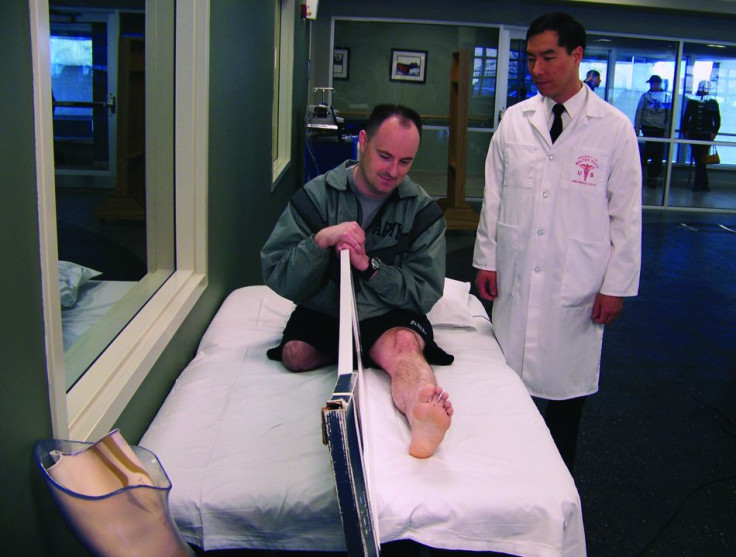Amputee Victims Of Boston Bombing Face Financial Challenges, Aside From Emotional Toll

Ten years ago, the American-led invasion of Iraq provided a renewed impetus for researchers and clinicians to advance the science of prosthetic medicine, reaching a milestone in 2009 with the first quadruple amputee to survive combat injuries.
Now, some 15 amputee victims of the April 15 bombing of the Boston Marathon focus on their recoveries as well as the gargantuan task ahead: funding their therapeutic care and the transformation that comes with new prosthetic limbs. Three were killed in the bombing attack, and some 264 injured when Chechen immigrant brothers, one now dead, exploded two successive bombs at the finish line of the marathon.
Aside from the horrific injuries, the 15 who lost limbs must now fund amputation surgeries and replacement limbs, with high-tech prostheses costing more than $50,000 to even $90,000 for a full-leg model- a faction of the money needed for their care.
Thus far, fundraising for victims has collected more than $23 million in corporate and individual donations, with some soliciting "crowd-sourced" donations online. Even victims with topline health insurance coverage would face additional costs beyond the surgeries, with most plans paying for basic prosthetic models as opposed to topline versions with sophisticated, lifelike joints.
The victims of the Boston bombing immediately touched the hearts of other amputees around the country, whether victims of combat or the more prosaic but equally horrific car accident. Rose Bissonnette, founder of the New England Amputee Association, immediately set to work helping amputee patients navigate the insurance aspects of their recovery.
Bissonnette, whoseleft leg was amputated following a car accident, recalled the story of one Boston bombing victim whose insurer called with this question: "How long are you going to need the prosthetic hands?'"
Ted Miller, a health economist, told me that immediate care for amputees and other victims of the bombing attack would not be the end of the story. The ultimate cost, he said, would include treatment for anxiety and post-traumatic stress disorder, "an issue for a whole lot more people than just people who suffered physical injuries," he said.
And even further into the future, victims may wish to plan new careers beyond disability benefits. Miller said two of the victims in Boston, brothers, formerly worked as roofers.
Some insurance companies said they'd be willing to rethink policies following the bombing attack, to help victims with the immense cost of recovery.
"We will work to ensure that financial issues/hardship will not pose a barrier to the care that affected members' need," said Sharon Torgerson, spokeswoman for Blue Cross and Blue Shield of Massachusetts, one of the state's largest health insurers.
Harvard Pilgrim Health Care, too, said they would change their policy to pay for some of the more expensive bionic prosthetic limbs when there is a "demonstrated need," Dr. Michael Sherman, chief medical officer for the insurer, said.
In addition, the 26 area hospitals treating bomb victims have set up charities to raise funds.
Published by Medicaldaily.com



























